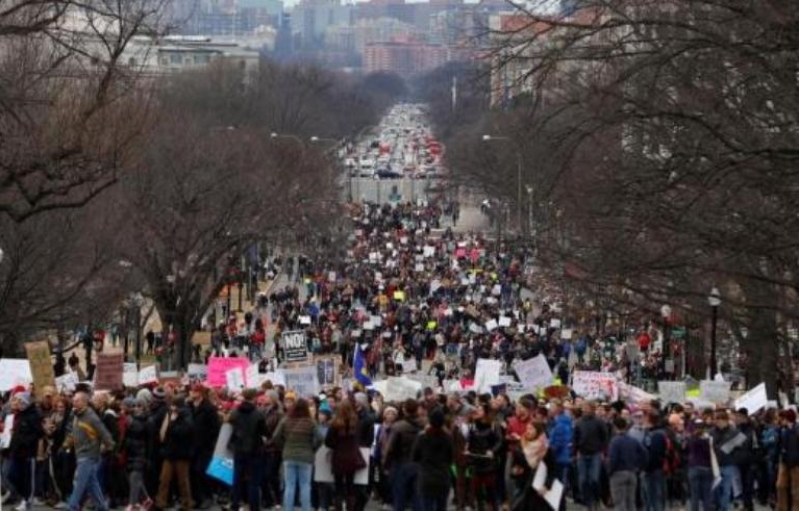
President Donald Trump defended his controversial executive order that bars the citizens of Iran, Iraq, Libya, Somalia, Sudan, Syria and Yemen from entering the United States, as thousands of protesters chanted outside of the White House and at multiple, major U.S. airports on Sunday in opposition of the president's sudden immigration policy change. Trump denied the ban was religiously-driven, but confused matters by also announcing Christian refugees would get first priority for U.S. entry. Many people now are seeking answers about why Pakistan and Saudi Arabia are not on Trump's immigration ban, which are countries in which Trump companies do business.
"This is not about religion," Trump said in the statement issued Sunday evening. "This is about terror and keeping our country safe. There are over 40 different countries worldwide that are majority Muslim that are not affected by this order."
Mayors from U.S. cities, such as Chicago, New York, Atlanta, Seattle and San Francisco, immediately joined others over the weekend to say they didn't want to "start turning on neighbors," reports New York Post.
Attorney generals from 16 states vowed they would fight the immigration policy change. Officials that signed the statement represent New Mexico, California, Connecticut, Hawaii, Illinois, Iowa, Maine, Maryland, Massachusetts, New York, Oregon, Pennsylvania, Vermont, Virginia, Washington and the District of Columbia. The attorney generals said they expect Trump's executive order to be struck down, but in the meantime they'll work to make sure as few as possible suffer as a result of the order.
Leaders of other countries also criticized the direction of the immigration policy change, with Canadian Prime Minister Justin Trudeau going out of his way to broadcast an online message for refugees rejected by Trump: "Canada will welcome you." Trudeau's tweet quickly received more than 150,000 likes, and trended on social media.
Trump again tried to blame media for characterizing his order as "a Muslim ban," reports Daily Caller.
"America is a proud nation of immigrants and we will continue to show compassion to those fleeing oppression, but we will do so while protecting our own citizens and border," Trump said in a statement. "America has always been the land of the free and home of the brave. We will keep it free and keep it safe, as the media knows, but refuses to say," he stated.
"My policy is similar to what President Obama did in 2011 when he banned visas for refugees from Iraq for six months."
"The seven countries named in the Executive Order are the same countries previously identified by the Obama administration as sources of terror. To be clear, this is not a Muslim ban, as the media is falsely reporting. We will again be issuing visas to all countries once we are sure we have reviewed and implemented the most secure policies over the next 90 days. I have tremendous feeling for the people involved in this horrific humanitarian crisis in Syria," Trump stated.
"My first priority will always be to protect and serve our country, but as President I will find ways to help all those who are suffering."
"Mass confusion," was how Lee Gelernt, deputy director of the ACLU's Immigrants' Rights Project, described what the executive order did to those already in some sort of traveling phase. American Civil Liberties Union representatives stepped in to help affected travelers over the weekend, saying individuals who already have lawful USA visas or green cards, like those who have risked their lives serving alongside U.S. forces overseas or who call America their home, should not be turned away from the United States.
After the presidential order took effect, hundreds of worldwide travelers were placed in quarantine, as the United States closed all avenues of arrival to the U.S. for a portion of the weekend from countries of banned origins.






